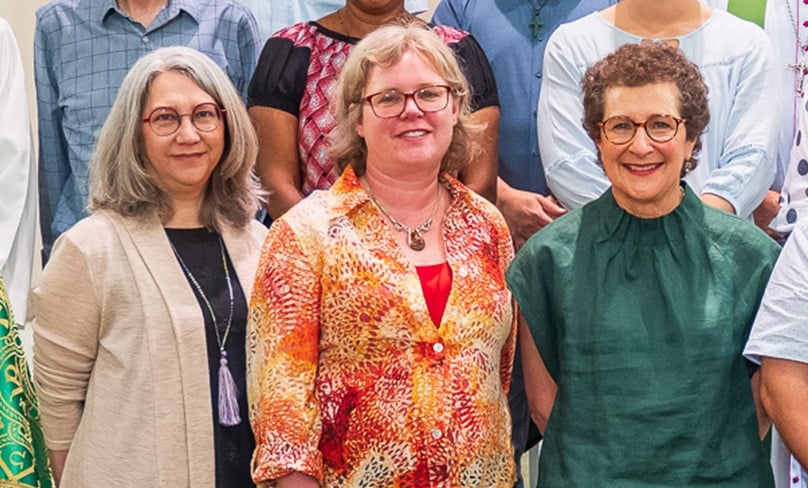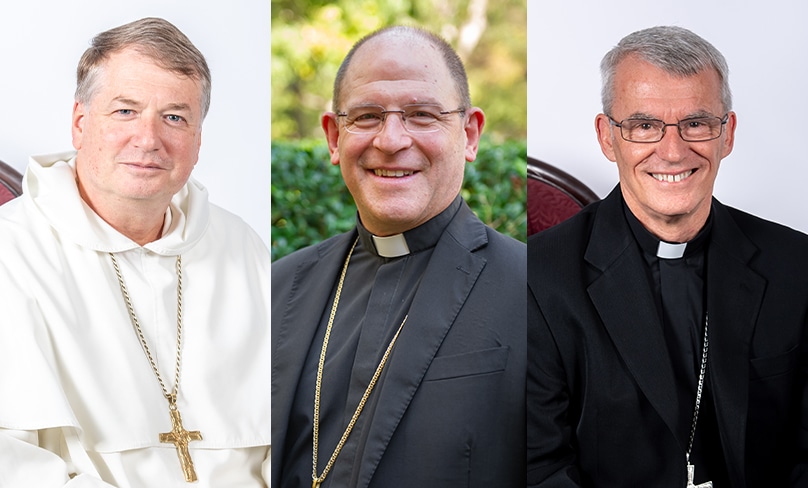
Pope Francis’ announcement of the participants for the October assembly of the Bishops Synod on Synodality has cemented Australia’s place as a key driver of the global synodal process, with Australians represented strongly at all levels.
The synod secretariat published the full list of participants on 7 July, including the non-bishop voting members joining the synod for the first time in history, ten of whom were drawn from Oceania.
Half of those ten Oceanians are from Australia: Dr Trudy Dantis, director of the National Centre for Pastoral Research; John Lochowiak, chair of the National Aboriginal and Torres Strait Islander Catholic Council; Diocese of Broken Bay chancellor Kelly Paget; Fr Sijeesh Pullenkunnel, chancellor of the Syro-Malabar Eparchy of Melbourne; and Professor Renee Kohler-Ryan, national head of philosophy and theology from the University of Notre Dame Australia.
We will also send six experts and facilitators to the synod, most of whom have extensive experience in conducting synodal listening sessions and spiritual conversations during the Plenary Council and the earlier stages of the synodal process.
The Synod’s working document called the formation of facilitators “a priority at all levels of ecclesial life,” underscoring their importance to the synodal process.
The Australian experts are ACU academics Dr Sandie Cornish and Fr Ormond Rush, key Plenary Council facilitator Br Ian Cribb SJ, and member of the synod methodology commission Adjunct Professor Susan Pascoe.
Divine Word missionary Fr Asaeli Raass SVD is listed as a Fijian expert but is serving in remote central Australia, while Fr Eamonn Conway, a priest of the Diocese of Tuam listed for Ireland, serves as professor of integral human development at the University of Notre Dame Australia.
While Australia has less than 0.5 per cent of the world’s Catholics, with six experts we are not far behind the largest national contribution—Italy, with 10—and will field nearly half as many as the continent where synodality began, South America, with 13.
Germany, by contrast, will send only a single expert—Professor Thomas Söding, vice-president of the central committee of German Catholics (ZdK). The US church will send only two, and the most populous countries on Earth—India and China—have not furnished the synod with a single theologian.
Australia will also provide five bishops: Archbishop Anthony Fisher OP, a member of the council of the Synod of Bishops; Archbishop Timothy Costelloe SDB, president of the Australian Catholic Bishops Conference; Bishop Anthony Randazzo, president of the Federation of Catholic Bishops Conferences of Oceania; Adelaide Archbishop Patrick O’Regan and Bishop Shane Mackinlay, of Sandhurst, Victoria.

Professor Kohler-Ryan told The Catholic Weekly that as a female lay theologian and mother of five she was struck by the significance of her inclusion in the Synod of Bishops.
“We’ve had laity in the professions, taking on key roles in church governance, laity all along have been doing the absolutely essential work in parishes and hospitals and schools, carrying out their apostolic mission,” she said.
“But this moment of bringing the laity into church decision-making processes is unique, and it now means the laity need to be quite aware not only that this is a momentous thing, but also of the responsibility that we hold to do what is right for Christ’s church.”
She said that Australia’s Plenary Council, as distinct from the German synodal way, gave our process more structure and might be one reason why Australians have been so influential on the world synodal process.
“We carried out our Plenary using a synodal process, but it was a plenary, which meant just as a matter of canon law … we couldn’t send something off to Rome to be ratified that was contrary to Catholic teaching, because it simply wouldn’t be ratified, and so would be thought a source of disunity,” she said.
“I think that enabled us to come to a certain focus in the end, because there was always that in mind. I think that what happened in the German process was that there were certain voices who were quite determined to make this a moment of countering universal teaching, in the hope that it might change.
“Australians—we found it very difficult—but we’re actually not too bad at being spontaneous, compared to Germans who find it hard to be spontaneous.”
Professor Kohler-Ryan said our attitude helped the Australian church to be flexible at the Plenary when, during the Second Assembly, a significant number of members protested the voting down of the motions on women, leading to redrafting and an attempt to reach an agreement on a revised text.
“There should have been a lot more prayer at that moment, but … that openness ended up I think being a strength. It’s a difficult balance being a Catholic, because of course one needs to be open, but not at the expense of what makes us church in the first place—following what Christ wants us to do.”
In a statement Archbishop Costelloe said the Synod on Synodality “offers the Church a precious opportunity to re-discover an essential dimension of its identity which has become somewhat obscured over the centuries.”
